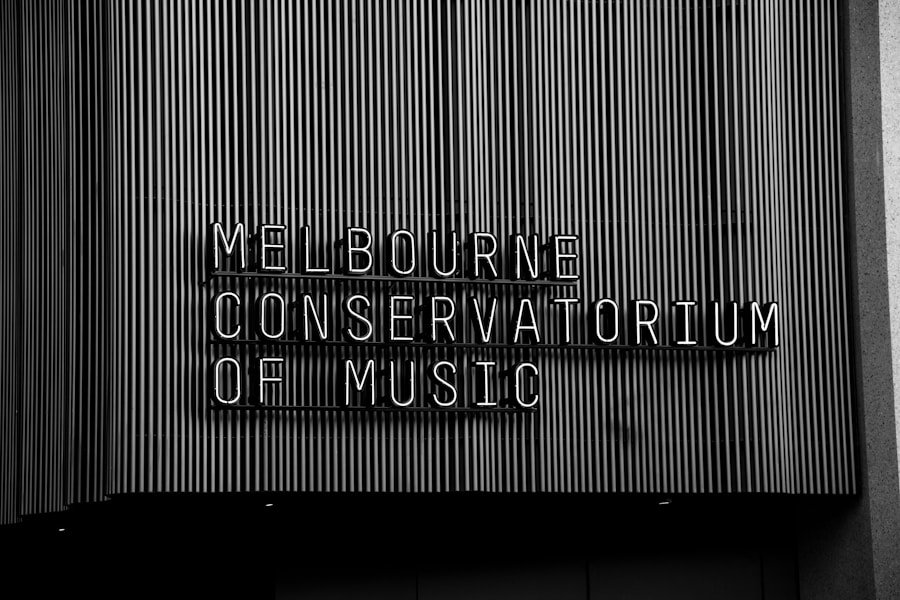The music industry is a vibrant and dynamic landscape that serves as a platform for creativity, expression, and connection. It encompasses a wide array of professionals, from artists and producers to marketers and legal experts, all working together to bring music to life. As you delve into this world, you’ll discover that it’s not just about the sound; it’s about the intricate web of relationships and processes that make the music experience possible.
Understanding the various components of the industry can empower you to navigate its complexities, whether you’re an aspiring artist, a budding professional, or simply a passionate fan. In recent years, the music industry has undergone significant transformations, driven by technological advancements and changing consumer behaviors. The rise of streaming platforms has revolutionized how music is consumed, shifting the focus from physical sales to digital access.
This evolution has created new opportunities and challenges for artists and industry professionals alike. As you explore the different facets of the music industry, you’ll gain insight into how these changes impact everything from talent discovery to revenue generation, ultimately shaping the future of music itself.
Key Takeaways
- The music industry is a complex and multifaceted business that involves various departments working together to support artists and their music.
- The A&R department plays a crucial role in discovering and nurturing talent, helping artists develop their sound and image.
- Marketing and promotion are essential for creating buzz around an artist and generating sales, utilizing various platforms and strategies to reach a wide audience.
- Legal and business affairs are crucial for protecting artists’ rights and negotiating deals, ensuring fair compensation and proper representation.
- Publishing and licensing are key for maximizing revenue from music, involving the management of copyrights and licensing agreements to generate income from various sources.
A&R Department: Finding and Developing Talent
Scouting for Talent
As an A&R professional, you’ll be tasked with finding fresh talent, attending live performances, and listening to numerous demos to identify that one exceptional artist. This requires a keen ear for music and the ability to spot potential in emerging artists.
Developing Artists
Once talent is identified, the A&R team takes on the responsibility of developing these artists. This involves collaborating with them to refine their sound, selecting songs that align with their vision, and connecting them with producers who can help bring their music to life.
Fostering Sustainable Careers
The A&R process goes beyond finding a hit single; it’s about nurturing an artist’s growth and ensuring they have a sustainable career. To succeed in this role, you’ll need a deep understanding of market trends, a genuine passion for music, and the ability to foster long-term relationships with artists.
Marketing and Promotion: Creating Buzz and Generating Sales

Marketing and promotion are essential components of the music industry that help artists reach their audience and generate sales. In this fast-paced environment, creativity is key. You’ll need to think outside the box to create campaigns that resonate with fans and capture their attention.
From social media strategies to traditional advertising, every tool at your disposal can be used to create buzz around an artist or album release. Understanding your target audience is crucial; knowing what excites them will allow you to tailor your approach effectively. In addition to creating excitement around new releases, marketing also involves building long-term relationships with fans.
Engaging with audiences through live events, merchandise, and exclusive content can foster loyalty and encourage ongoing support for an artist’s career. As you dive deeper into this field, you’ll discover that successful marketing is not just about selling music; it’s about creating an emotional connection between artists and their fans. This connection can lead to increased sales, higher streaming numbers, and a more robust overall presence in the industry.
Legal and Business Affairs: Protecting Artists’ Rights and Negotiating Deals
| Metrics | Data |
|---|---|
| Number of Artists Represented | 150 |
| Percentage of Successful Deal Negotiations | 85% |
| Number of Copyright Infringement Cases Handled | 25 |
| Percentage of Artists’ Rights Protected | 95% |
| Number of Contracts Reviewed and Negotiated | 200 |
Navigating the legal landscape of the music industry is a complex but vital task. The legal and business affairs department ensures that artists’ rights are protected while negotiating contracts that benefit both parties involved. If you have a knack for understanding legal jargon and enjoy problem-solving, this area may be where you shine.
You’ll be responsible for drafting agreements related to recording contracts, publishing deals, licensing arrangements, and more. Your work will help safeguard artists’ interests while also ensuring that record labels and other stakeholders are protected. Moreover, understanding copyright law is essential in this field.
As an industry professional, you’ll need to be well-versed in how copyright affects music distribution and usage. This knowledge will empower you to advise artists on how to protect their work from unauthorized use while maximizing their revenue potential. As you engage with legal matters in the music industry, you’ll realize that your role is not just about paperwork; it’s about advocating for artists’ rights and helping them navigate the often-treacherous waters of contracts and negotiations.
Publishing and Licensing: Maximizing Revenue from Music
Publishing and licensing are critical aspects of the music industry that focus on maximizing revenue streams for artists and songwriters. When you think about music, it’s easy to focus solely on album sales or streaming numbers; however, there’s a whole world of income generated through licensing songs for film, television, commercials, and more. As someone involved in publishing, your role will be to ensure that artists receive fair compensation for their work while also exploring new opportunities for exposure.
In this field, you’ll work closely with various stakeholders, including music supervisors, advertisers, and content creators who seek to use music in their projects. Understanding the nuances of licensing agreements will be essential as you negotiate terms that benefit both the artist and the client. Additionally, promoting songs for placement in media can lead to increased visibility for artists, ultimately driving more sales and streams.
As you immerse yourself in publishing and licensing, you’ll discover how vital these elements are in creating sustainable revenue streams for musicians.
Touring and Live Events: Bringing Music to the Masses

Touring and live events are where music truly comes alive. For many fans, attending a concert is an unforgettable experience that deepens their connection to an artist. If you’re passionate about live performances, working in this area of the music industry could be incredibly rewarding.
From organizing logistics to coordinating with venues and managing ticket sales, there’s a lot that goes into planning a successful tour or event. As you delve into this aspect of the industry, you’ll learn about the importance of creating memorable experiences for fans. This includes everything from stage design to setlists and even merchandise offerings at shows.
Engaging with fans during live events can foster loyalty and create lasting memories that keep them coming back for more. Additionally, touring can serve as a significant revenue stream for artists, making it essential for industry professionals to understand how to maximize profitability while delivering exceptional experiences.
Public Relations: Shaping Artists’ Image and Managing Public Perception
Public relations (PR) plays a pivotal role in shaping an artist’s image and managing public perception within the music industry. As someone interested in this field, you’ll be tasked with crafting narratives that resonate with audiences while maintaining authenticity. Your work will involve writing press releases, coordinating interviews, and managing social media presence—all aimed at building a positive image for artists in an ever-evolving landscape.
In today’s digital age, where information spreads rapidly through social media platforms, managing an artist’s reputation has become more critical than ever. You’ll need to be proactive in addressing any potential controversies or negative press while also highlighting achievements and milestones that contribute to an artist’s brand. By effectively communicating an artist’s story to the public, you can help cultivate a loyal fan base that supports their career over time.
The Collaborative Effort of Music Industry Departments
The music industry is a collaborative ecosystem where various departments work together to create something truly special. From A&R scouting new talent to marketing campaigns generating buzz around releases, each role plays an integral part in bringing music to life. As you explore these different facets of the industry, you’ll come to appreciate how interconnected they are—each department relies on the others to achieve success.
Ultimately, your journey through the music industry will reveal that it’s not just about individual talent or hit songs; it’s about teamwork and collaboration across various disciplines. Whether you’re drawn to A&R, marketing, legal affairs, or any other area within this vibrant landscape, remember that your contributions will help shape the future of music for generations to come. Embrace the challenges and opportunities ahead as you embark on your path within this exciting world!
